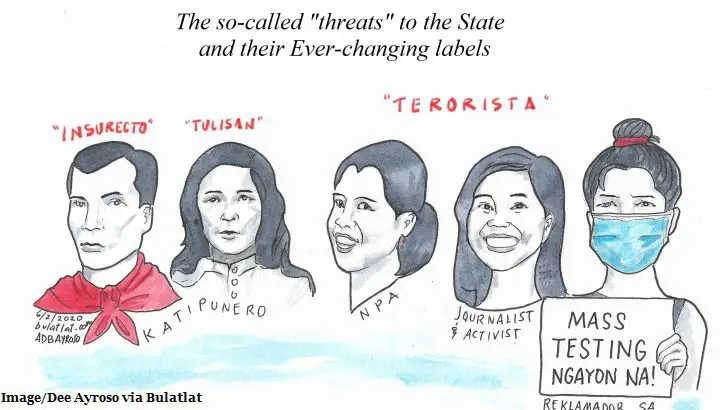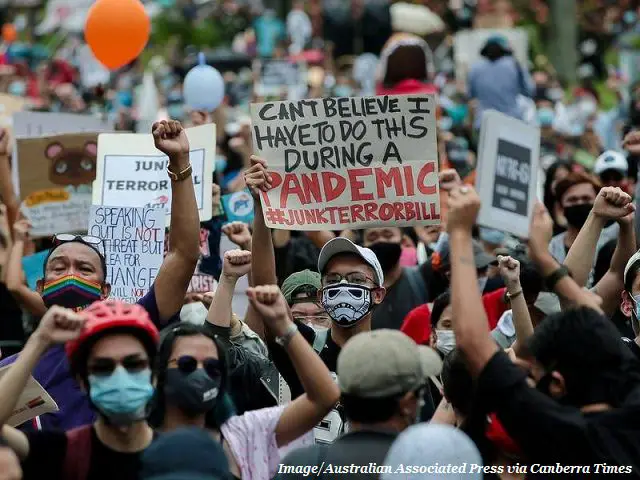Other’s Vantage Point
The Daily Tribune (TDT) took its side of the argument bit by bit. It highlighted that the Anti-Terrorism Bills (Senate Bill 1083 and House Bill 6875) underwent “tremendous deliberations in the Senate.” If this statement was the case, then there should be no loopholes of the Bill. If the Anti-Terrorism Act of 2020 was a correction for the Human Security Act of 2007, then, there should be no problems with this Act.
Firstly, the broad definition of the Anti-Terrorism Act of 2020 would asphyxiate, reduce, and securitize civic space and rights of individuals at work. It meant that they would place workers, trade union activists, and other human rights players and protectors under dangerous situations. They would agonize from baseless attacks, harassment, undiscerning and groundless rounds of capture, intimidation, and killings at the hands of the law enforcement agents, the military officers, and security agencies.
Secondly, the broad definition of the Anti-Terrorism Act of 2020 highlighted many provisions of the bills that seriously contradicted international law. Under the international labor standards, the Anti-Terrorism Act of 2020 could only dwindle or destabilize the implementation of the right to establish, including the right to strike, interrupt the principles of freedom of association.

Thirdly, in Section 9 of both the Senate Bill 1083 and House Bill 6875, readers should know that these Bills would outlaw individuals who expressed an opinion or other forms of expression in support of the unproven terrorists. Even if these people did not take part in the commission of a terrorism act, police officials would charge them and seize them by expressing their opinions and views. Considering the broad definition of terrorism in the Bills, any individuals who expressed their sentiments or embrace paraphernalia encouraging a demonstration or mass action would be at risk of the provision.
Fourthly, there have been plenty of drawbacks or pitfalls of the Act. Government leaders should know it instead of passing it urgently. This time when COVID-19 pandemic strikes, what place on Earth did these people have space and time working on this Act. How on Earth did these Bills or Act of 2020 come to realize when pandemic produced panic in all of us.
My Perspective
If the government of the Philippines knows what it is doing, then it does or will not allow any harm to the public. The government leaders should not devour the last shadow of democracy that left in us. The government officials should serve as role models of the people and citizens. The people are watching despite the horror and tension. Intelligent people, not the trolls on Facebook and YouTube, are listening. They are not blind, deaf, and mute. Oh, gosh! I am scared. If things do not seem right, who else is fixing this hullabaloo?
For further details, please continue reading here and there.
References
-
- The Daily Tribune. (2020). ABS-CBN fuels misinformation on legislation. Retrieved July 7, 2020, from https://tribune.net.ph/index.php/2020/06/08/abs-cbn-fuels-misinformation-on-legislation/
- Burrow, S., & Yoshida, S. (2020). Anti-Terror Bills (Senate Bill 1083 and House Bill 6875) violate international labor standards. A letter to President Duterte. Retrieved July 7, 2020, from https://www.ituc-csi.org/IMG/pdf/ituc_letter_on_anti_terrorism_law_philippines.pdf

